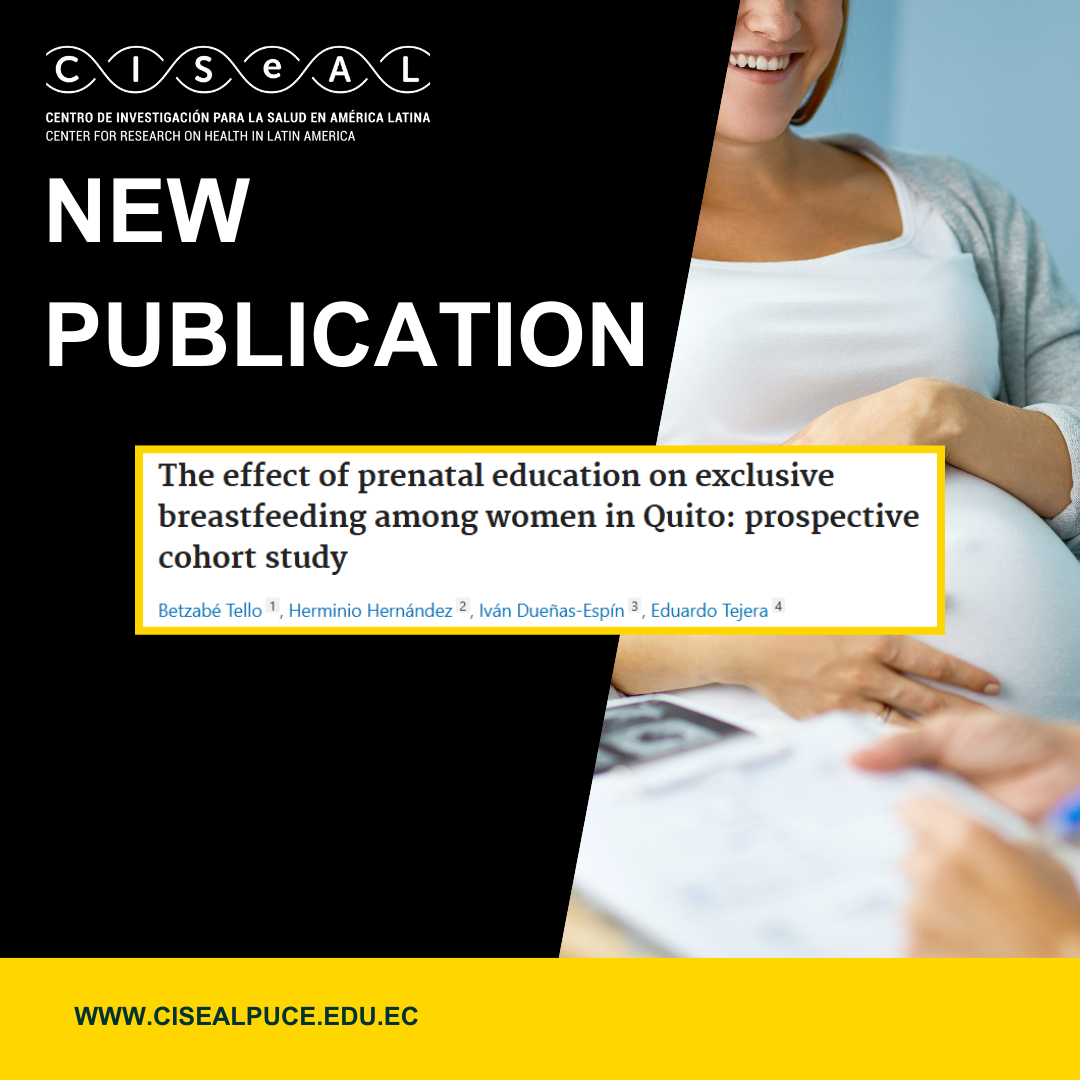
The study led by Dr. Betzabé Tello, principal investigator of CISeAL, evaluated the effect of prenatal education (PE) on the duration of exclusive breastfeeding (EBF) among women who gave birth in hospitals in Quito. A prospective cohort study of 278 mothers, of whom 152 received PE and 126 did not, was followed from birth to six months postpartum. The results showed that mothers who participated in PE programs maintained EML for longer compared to those who did not (mean 89.4 days vs. 66.1 days) and had a lower rate of EML abandonment. In addition, this study identified factors that negatively influence continuity of EML, such as delivery in public hospitals, postpartum depression, perception of low milk production, return to work, recommendations from health professionals, family counseling, and negative breastfeeding experiences.
These findings reinforce the importance of integrating prenatal education programs into routine care and strengthening support for mothers during the postpartum period. Actions such as strengthening the competencies of breastfeeding professionals, screening for postpartum depression by gynecologists, pediatricians, family physicians and general practitioners, community awareness campaigns and improving women's experiences during childbirth can improve breastfeeding indicators.
If you want to know more about this interesting publication we invite you to review the full article in the following link:



